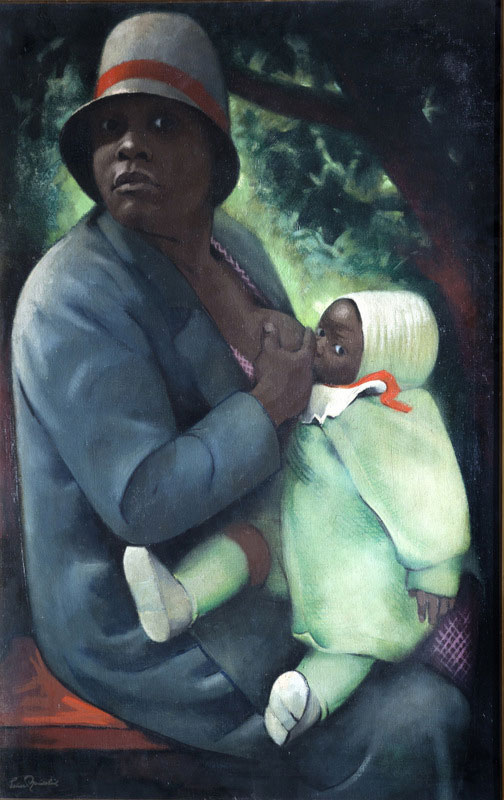Ernst Neuschul, Black Mother (1931)
- The New Walk Museum and Art Gallery, Leicester

Fig.1 Ernst Neuschul, Black Mother (1931). © the Norland family. Image courtesy of the New Walk Museum and Art Gallery, purchased from Campbell and Franks Ltd with MGC/V&A Purchase Grant Fund assistance.
Black Mother by German Expressionist artist Ernst Neuschul is an intimate portrayal of a mother breastfeeding her child. The work treats the subject with great dignity, belying the extreme difficulties faced by people of colour in inter-war Germany.
Neuschul created this painting in 1931 whilst he was living in Berlin, a time when the Nazi party was making significant gains in elections. People of colour were highly persecuted under the Nazi regime, and many African-Germans were forcibly sterilised. In Black Mother, Neuschul instead celebrates the central figure, although the way she stares at the viewer is ambiguous. Is she alert and on edge, feeling threatened? Alternatively, is she defiant and proud, determined to stand her ground in front of the intruding viewer? The baby similarly acknowledges our gaze but does not seem scared, instead comforted by their mother’s protection.
Neuschul himself was a Jewish artist whose work was targeted by the Nazis. He was removed from his teaching post as Professor of Fine Art at the Berlin Academy of Fine Art in 1933. That same year an exhibition of his work was shut down, and many of his works were vandalised with swastikas. Neuschul is noted for his provocative paintings of people of colour and ordinary workers. His work is socially conscious and celebrates humanity.
Black Mother makes a strong statement celebrating black mothers in Nazi-controlled Germany. Neuschul was keen to treat the subject with respect and to honour motherhood. His work venerates an oppressed figure and gives the black mother the dignity and respect she deserves.